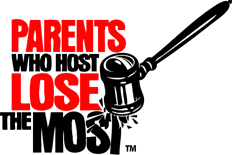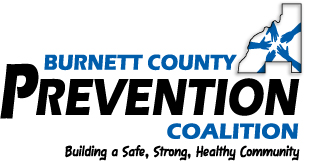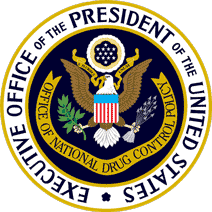 Parents Who Host Lose the Most
Parents Who Host Lose the Most
The objective of this initiative is to educate parents about the health and safety risks of serving alcohol at teen house parties and to increase awareness of and compliance with Wisconsin’s Underage Drinking Laws. The campaign targets parents in order to educate them about the legal ramifications and health and safety risks of serving alcohol to teens. Too often communities look the other way when it comes to teen drinking, assuming it is a “rite of passage.” The truth: Purchase, provide, or pour alcohol for underage drinkers and the people they injure can sue you. And since your homeowner’s insurance doesn’t cover illegal activity—the risk falls on you!
To request materials to participate in this campaign, please contact Lisa Slater, Project Coordinator, 715-463-5721, empoweryouthdrugfree@gmail.com.
Parent Tips:
- If your teen is giving a party, help your teenager plan the party. Make a guest list and invite only a specific number of people.
- Have your child pass out or send invitations and try to avoid the “open party” situation.
- Don’t send e-mail invitations. They can be forwarded to a large number of people quickly and you lose control of who has this information.
- Put your phone number on the invitation and welcome calls from parents.
- Set rules ahead of time such as no alcohol, tobacco, or other drugs. Set a start and end time for the party.
- Let attendees know that if they leave, they can’t come back.
- Have plenty of food and non-alcoholic beverages.
- Plan some activities such as music, games, movies, etc.
- Let your neighbors know in advance there will be a party and that you will be there to supervise.
- Familiarize yourself with your community’s noise ordinance.
- Limit the party’s access to a certain area of the house/property.
- Have a plan for dealing with vehicles. Include parking information on your party invitation.
- Call parents of any teen who arrives in possession of alcohol or under the influence. If you can’t get in touch with the parents, keep the teen there or call the police if necessary. You can be civilly liable if you know they have been drinking and you let them leave.
- Secure all forms of alcohol, firearms, and other potentially hazardous items in your home in a safe place.
- Make regular and unobtrusive visits to the party area with sensitivity to teens’ needs for privacy and independence.
- Invite some other parents to help chaperone if there will be a large number of teenagers.
Hiding in Plain Sight Mock Room
The purpose of The Hiding in Plain Sight Mock Room is to educate parents/guardians on what can be hiding in plain sight in their kid’s room. Unfortunately, technology makes it easier to access products that help disguise where drugs are hidden. This room gives just a small sample of what is out there, and what kids ARE using. To request this project for an event or presentation, please contact Lisa Slater, Project Coordinator, 715-463-5721, empoweryouthdrugfree@gmail.com.
Prescription Drug Disposal
Medicines that sit in home cabinets are highly susceptible to diversion, misuse, and abuse. Many people do not know how to properly dispose of unused medications, often flushing them down the toilet or throwing them away. Both are potential safety and environmental hazards. The Burnett County Police Departments will work directly with the DEA to properly dispose of the medication. Event Sponsored by Burnett County Adolescent AODA Prevention Coalition and the DEA in collaboration with local law enforcement. It is funded by a DFC grant. For more information call the Burnett County Prevention Office at 715-349-2155 or Lisa Slater, Project Coordinator, 715-463-5721, empoweryouthdrugfree@gmail.com.
Permanent drop-off sites for Burnett County:
Burnett County Sheriff’s Department (always available)
7410 County Rd. K
Siren, WI 54872
St. Croix Tribal Police Department (available during normal business hours)
24663 Angeline Ave.
Webster, WI 54893
Drug Free Communities
BCPC was awarded a Drug Free Communities (DFC) grant to provide education to our community in alcohol and tobacco/vaping prevention for our youth. It was funded through the Office of National Drug Control Policy (ONDCP) which is provided to support established community-based coalitions capable of effecting community-level change. The philosophy behind the DFC program is that local drug problems require local solutions. With a small Federal investment, the DFC Program doubles the amount of funding through the DFC program’s match requirement, to address youth substance use. Recent evaluation data indicated that where DFC dollars are invested, youth substance use is lower. Over the life of the DFC program, youth living in DFC communities have experienced reductions in alcohol, tobacco, and marijuana use. The primary purpose of the DFC program is to: strengthen the collaboration among community entities and reduce substance use among youth. As a grantee, we are required to work toward these two goals as the primary focus of our Federally-funded effort. In addition to that, we are expected to work with leaders within their communities to identify and address local youth substance use problems and create sustainable community-level change through environmental strategies.


